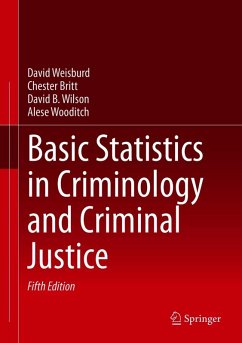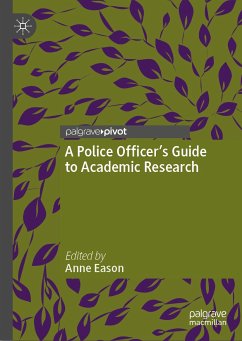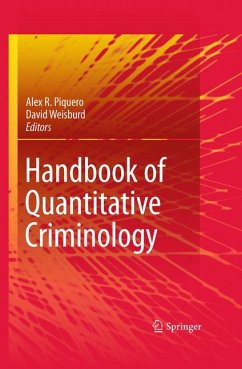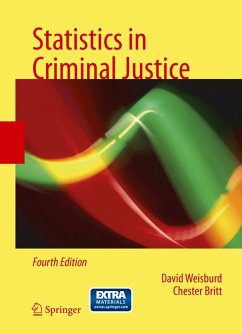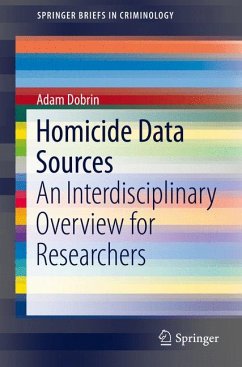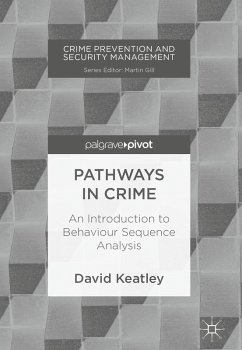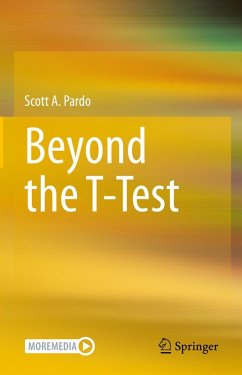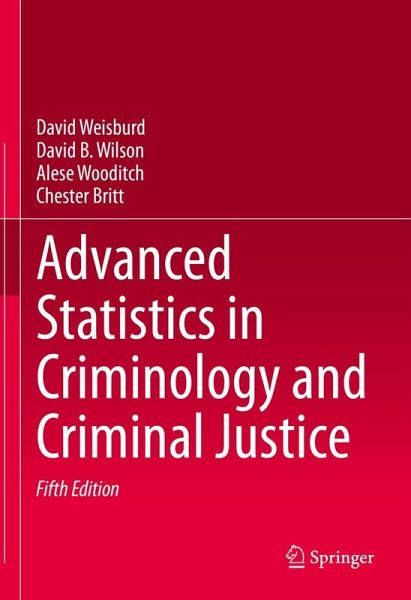
Advanced Statistics in Criminology and Criminal Justice (eBook, PDF)
Versandkostenfrei!
Sofort per Download lieferbar
68,95 €
inkl. MwSt.
Weitere Ausgaben:

PAYBACK Punkte
34 °P sammeln!
This book provides the student, researcher or practitioner with the tools to understand many of the most commonly used advanced statistical analysis tools in criminology and criminal justice, and also to apply them to research problems.The volume is structured around two main topics, giving the user flexibility to find what they need quickly. The first is "the general linear model" which is the main analytic approach used to understand what influences outcomes in crime and justice. It presents a series of approaches from OLS multivariate regression, through logistic regression and multi-nomial...
This book provides the student, researcher or practitioner with the tools to understand many of the most commonly used advanced statistical analysis tools in criminology and criminal justice, and also to apply them to research problems.
The volume is structured around two main topics, giving the user flexibility to find what they need quickly. The first is "the general linear model" which is the main analytic approach used to understand what influences outcomes in crime and justice. It presents a series of approaches from OLS multivariate regression, through logistic regression and multi-nomial regression, hierarchical regression, to count regression. The volume also examines alternative methods for estimating unbiased outcomes that are becoming more common in criminology and criminal justice, including analyses of randomized experiments and propensity score matching. It also examines the problem of statistical power, and how it can be used to better designstudies. Finally, it discusses meta analysis, which is used to summarize studies; and geographic statistical analysis, which allows us to take into account the ways in which geographies may influence our statistical conclusions.
The volume is structured around two main topics, giving the user flexibility to find what they need quickly. The first is "the general linear model" which is the main analytic approach used to understand what influences outcomes in crime and justice. It presents a series of approaches from OLS multivariate regression, through logistic regression and multi-nomial regression, hierarchical regression, to count regression. The volume also examines alternative methods for estimating unbiased outcomes that are becoming more common in criminology and criminal justice, including analyses of randomized experiments and propensity score matching. It also examines the problem of statistical power, and how it can be used to better designstudies. Finally, it discusses meta analysis, which is used to summarize studies; and geographic statistical analysis, which allows us to take into account the ways in which geographies may influence our statistical conclusions.
Dieser Download kann aus rechtlichen Gründen nur mit Rechnungsadresse in A, B, BG, CY, CZ, D, DK, EW, E, FIN, F, GR, HR, H, IRL, I, LT, L, LR, M, NL, PL, P, R, S, SLO, SK ausgeliefert werden.



